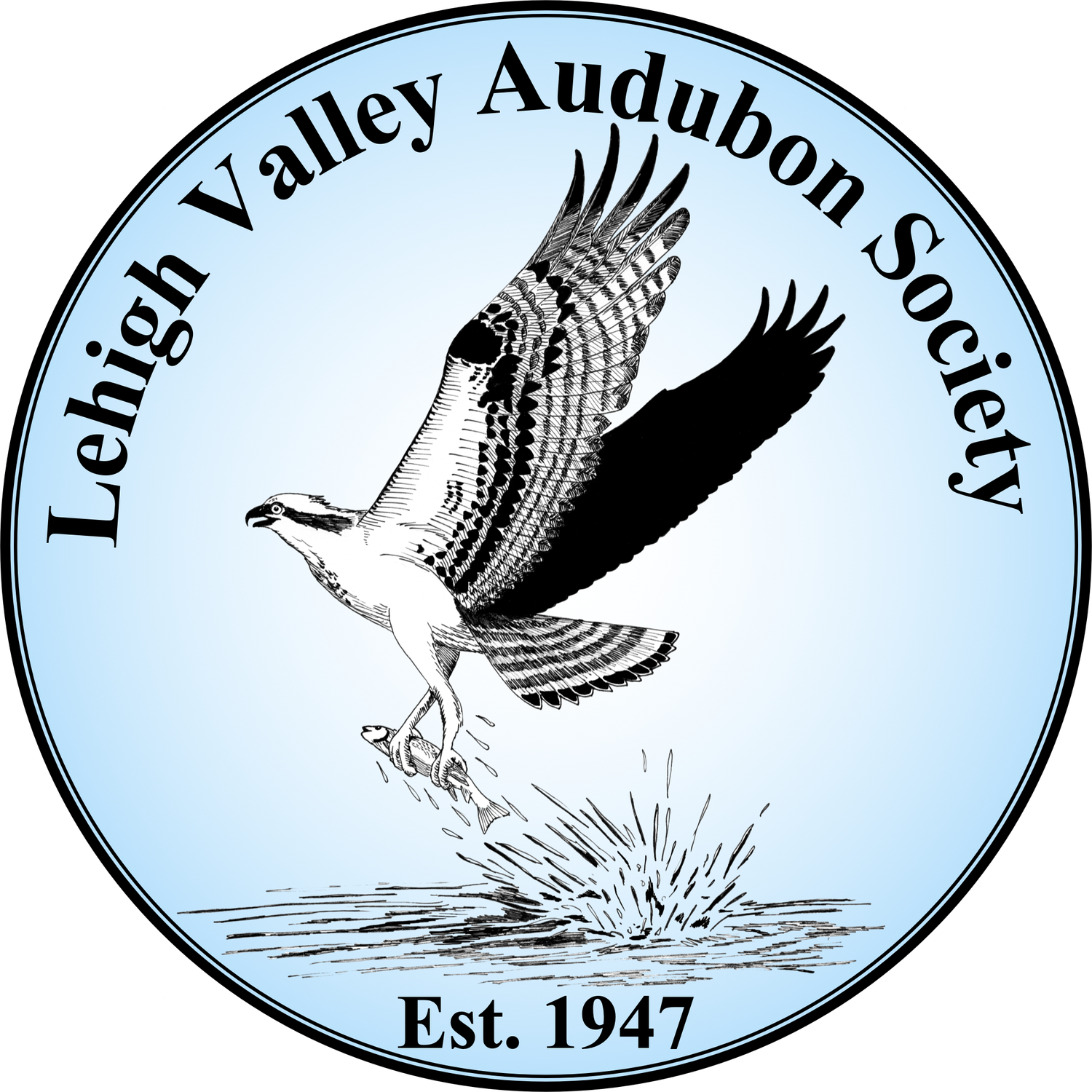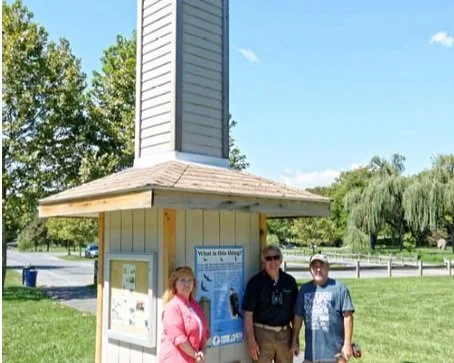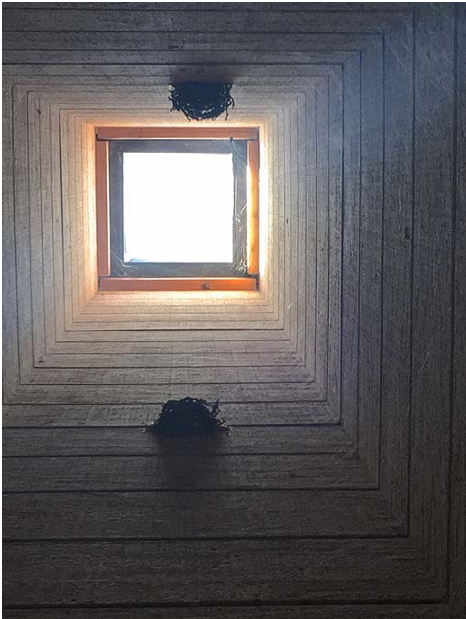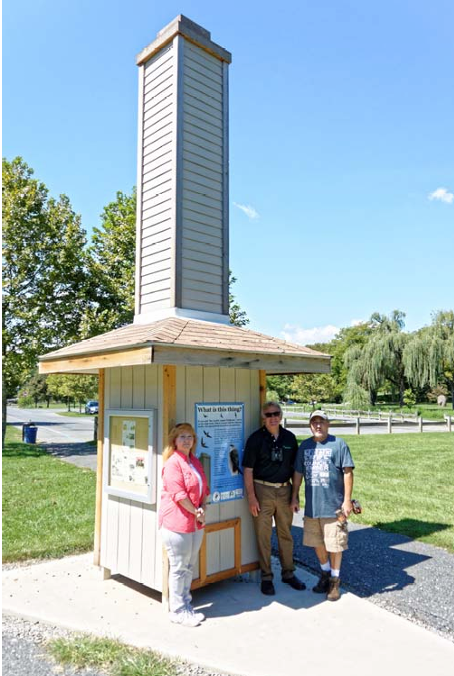Chris Hugosson
Originally Published in October - December 2016 Quarterly Newsletter of The Lehigh Valley Audubon Society
Chimney Swifts suffer from fewer chimneys. Scott Burnet leads Lehigh Valley Audubon Society’s effort to help.
Hang on… Chimney Swifts Photo by Scott Burnet
There’s light at the end of the tunnel. Chimney Swift Tower Nests Photo by Scott Burnet.
Even in a setting like this, Chimney Swifts have successfully reared chicks. Photo by Chris Hugosson
What is the problem
Chimney Swifts spend most of their life on the wing. But even they need to nest and, during migration, roost. Historically, large hollow trees served this function. But as large trees became rarer, chimneys replaced them. Today, even chimneys are becoming rarer as they are capped or taken down. This contributes to the Chimney Swift population falling. BirdLife International states that between 1966 to 2007 the population came down by 90% in Canada and 50% the USA. Counting survey blocks in the PA breeding bird atlas with confirmed nests, the numbers are down by more than 50% between the 1980s and 2000s.
What has been done
Existing chimneys need to be saved. Chimney Swifts do remember chimneys from year to year so keeping traditional roost sites available is important. And that has happened. LVAS has helped secure assurances that the chimney at Muhlenberg College will remain. Same thing with the 200 year old chimney at Lehigh Parkway. Both nice places to witness flocks of swifts swirl in right before sunset.
To reverse the negative trends that is not enough. New chimneys are needed. Hence we have towers that only serve Chimney Swifts.
Scott Burnet and his team of volunteers have so far built four towers in the Lehigh Valley. Starting in 2012 Scott built his first tower by his garage. In 2013 and 2014 two towers came up around Lake Muhlenberg. One tower on the island and the other on Cedar Beach. You might have seen the information kiosk around the one at Cedar Beach. This year one tower is coming up at Lehigh Gap Nature Center and another in Mertztown, Longswamp Township.
All these efforts have now started to bear fruit. The first nests have been confirmed in the Cedar Beach tower.
How to build
Building a tower takes both expertise and money. It quickly becomes apparent that without experience managing construction projects and a rich network of contacts, towers remain a dream. Challenges include getting permission to build, negotiating access to equipment, identifying price worthy material, and finding volunteers. And not least, having the grit to synchronize all the pieces. We are lucky to have such a person in Scott. Hearing Scott describe his kayak trips with ladders and swinging 60lb tower sections while balancing on a 10ft ladder in the dark just reinforces that image.
Thank you
LVAS has many to thank in addition to Scott.
James Hardie Corporation contributed siding material
Dries Lumber helps with material
Dan Kunkle’s group Color of Nature has volunteered many hours of work
Friends of Allentown Parks and Karen El Chaar has helped with funding and assistance
Lynn Serfass has helped with funding
And many volunteers have contributed to this success
What is next?
More towers will come up and you can help. Look for LVAS emails, facebook posts, and Meetup events where you can volunteer. You can also donate money via our website. If you prefer, you can earmark your donation to tower construction.




